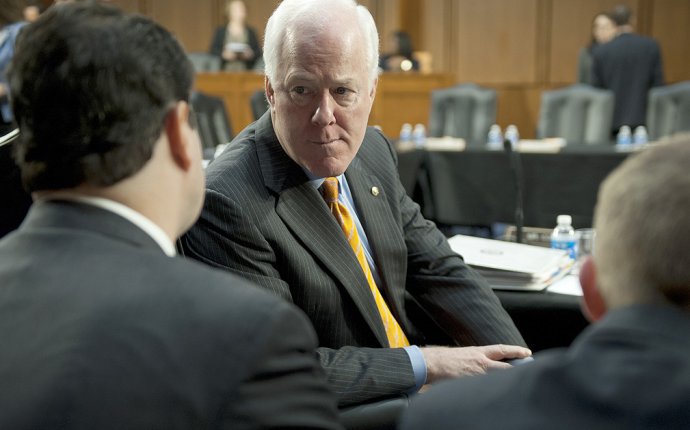
What is Considered mental health?
Some of the voices least heard in the discussion to privatize the Medicaid-funded behavioral health system in Michigan or improve the current system are the families of those 350, 000 people with mental health problems, substance abuse addictions or the intellectually or developmentally disabled.
I sat down recently with 10 family and board members of the Alliance for the Mentally Ill Oakland County in Southfield. For more than 90 minutes, they told me difficult stories about their sons, daughters and close relatives, and how they have passionately fought to maintain or expand services to make better the lives of their loved ones.
Quite honestly, they could have talked longer if I had not interrupted them, sometimes abruptly, because I wanted to know why, if they sometimes have problems under the current state system, they are so vehemently opposed to having Medicaid health plans manage the $2.6 billion Medicaid behavioral health funds, as Gov. Rick Snyder has proposed and state legislators appear to be carrying out in the fiscal 2018 budget.
Fred Cummins, chair of the AMI Oakland County board, gave me a straightforward answer.
"If we think it is bad now, wait until the HMOs start making decisions, " said Cummins, who earlier spoke about his 50-year-old daughter who has suffered from a form of schizophrenia since age 17. "We are taking care of her now."
Cummins then described in a two-page letter he handed me how his daughter had been denied necessary support services by mental health agencies that affected her health and nearly killed her, he said.
In a statement, Cummings said the following: "(The) community mental health and the core provider have, through their misconduct, been reward by saving hundreds of thousands of dollars in addition to costing taxpayers hundreds of thousands of dollars in physical health care services."
Despite having problems ensuring his daughter has sufficient mental health services through the current system, Cummins is very much opposed to the effort to transfer Medicaid behavioral health system to the management of the 11 Medicaid HMOs.
I have to say at this point that I understand their frustration with the current system, and I understand they have extreme worries about moving to an unknown system run by HMOs, half of them owned by out-of-state for-profit companies.
Believe me, I have covered health care for 35 years, and I recall writing stories in the 1980s and even in the 1990s about how health insurers and HMOs, more often, denied physical health care to people that led to their deaths. It happens.
My friend, Wendell Potter, a former Cigna executive, whom I used to interview when I was with Modern Healthcare, a sister publication of Crain's Detroit, also has told me horror stories about HMO denials and their profit motives.
I also must say that I have covered Michigan's now 17 HMOs since 2008. There has never been an egregious case brought to my attention like those I have covered in the past.
Do HMOs and insurance companies deny and delay coverage? Yes, of course they do. Complaints are filed daily with the state Department of Insurance and Financial Services. It has happened personally to me and I have unsuccessfully complained. But those instances were about minor issues involving what is a covered service or whether a charge should be considered under dental or medical deductions. Not about the life-threatening issues facing these families who depend daily on mental health workers.
However, I do believe the Medicaid HMOs in Michigan are doing a better-than-average job than others nationally. Not perfect by a long shot, especially on the behavioral health side, where statistics are nonexistent or below average. The National Commission on Quality Assurance bears out that statement. Look at the statistics. Michigan HMOs do pretty well comparatively in the NCQA's annual ranking of health plans. For example, six of the state's 11 Medicaid HMOs ranked in the top 50 nationally.
But concerns about Medicaid HMOs managing behavioral health, substance abuse and also care to those people with intellectual and developmental disabilities are real to the families.
While there is a national trend toward handing over Medicaid funding to managed care organizations to dually manage physical and behavioral health — under the goal of care coordination and reduced costs — the results so far are uneven and the theory so far is unproven, in my opinion.
For Crain's, I have written about integration of physical and behavioral health, and none of the 31 states can absolutely prove they have a successful model. I wrote a Health Care Extra package of stories in May 2016 that looked at the issue and the three states experimenting with integration.
Maybe Michigan can figure it out, but the track record so far is thin for positive results.
This is why families like Bob and Judy McReavy are so concerned. The McReavys have a son with mental health problems who lived independently for 30 years. That changed recently when the state began cutting budgets the last three years for a total of 17 percent at the Macomb County Community Mental Health Authority, which had to cut downstream costs.
"He is back at home, " Bob McReavy said. "Gov. Snyder and the legislature are hurting the disabled with budget cuts. He got treatment costing $1, 800 per year with a $4, 200 housing subsidy. Budget cuts close the (independent housing program in Macomb County) and 30 people lost housing."
Bob, who became visibly upset as he spoke to me, said his son has been hospitalized three times this year.









